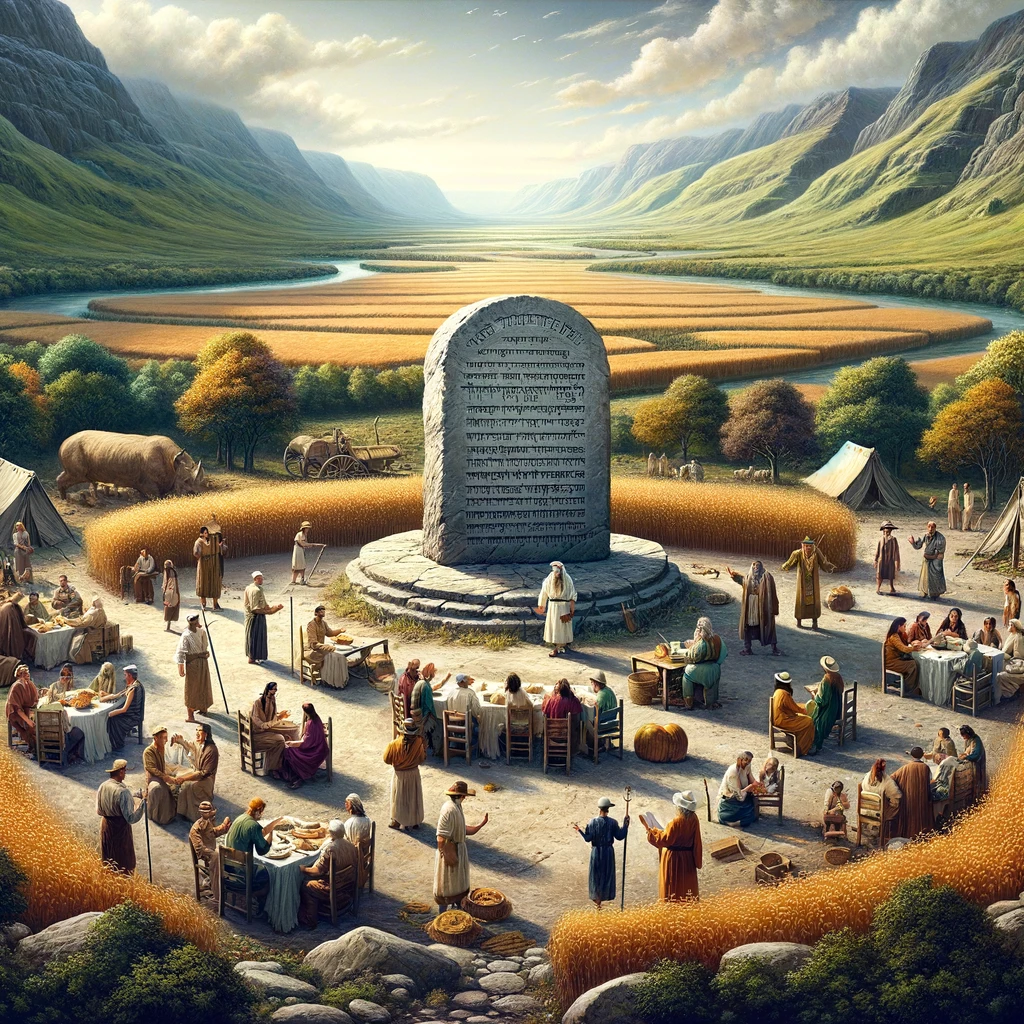The Theonomic Answer: A Response to Ligon Duncan

25 March 2024
by Dr Adi Schlebusch
Earlier this month J. Ligon Duncan appeared as a guest on the Room for Nuance Podcast where he was asked to discuss Theonomy. The actual discussion of the topic was rather brief and largely confined to the final ten minutes of the show. Given Duncan's high profile in the Presbyterian world as the Chancellor of Reformed Theological Seminary and as a professor in its Department of Systematic Theology, it would be irresponsible to let an opportunity slip by without pointing out the weaknesses in his arguments against Biblical Christianity.
First of all, it is highly encouraging when your enemies acknowledge your successes. Duncan admits that by the late 1990s he had thought that Theonomy was dead, but admits that “for the last seven years or so I saw the zombie coming out of the grave.” More and more people are being awakened to the truth of God’s Word by the power of the Holy Spirit, and Duncan came to the realization that he cannot continue to ignore Theonomy as he had done for the first two decades of this century. Because of this he admittedly felt the need to republish some of his polemic works against theonomy to re-engage with its adherents.
Duncan’s argument against Theonomy rests upon two points:
Firstly, Duncan rejects Theonomy as an “overreaction” to antinomianism, and one which he rejects as “utterly impractical ... with no possibility of this being implemented in any possible world.” Of course, this statement is both historically and theologically inaccurate. God’s revelation of his Law to humanity through Scripture was given with a clear purpose, and that purpose was implementation. Even if you were to be so eschatologically pessimistic that you hold that there can never again be a society in the future where Biblical law could be implemented, then you would still have to admit that the first audience to which the revelation was given was at least such a society. Secondly, there are plenty of societies throughout church history in which Biblical Law was successfully implemented, including in the British Isles under king Alfred the Great (848—899). As the eighteenth-century English historian Edward Gibbon notes: “The wise Alfred adopted as an indispensable duty the extreme rigour of the Mosaic institutions."1 Alfred consciously based his law code not only on the ten commandments, but even adapted case laws from the books of Moses to meet the culture and conditions of early medieval Britain.2 There are ample similar examples throughout the history of Western civilization. More recently the early American colonies also had legal codes directly reflecting the Bible. One historic example is the Massachusetts Bay Colony, established in the 1630s. Its legal framework, known as the Book of Laws and Liberties of 1648 included various laws that were derived from biblical passages. For instance, the capital offences listed included idolatry, blasphemy, witchcraft, murder, and adultery, reflecting the influence of the biblical Ten Commandments and other Mosaic laws. This legal code explicitly cited scripture as the basis for these laws, demonstrating the colony's commitment to creating a theonomic society where civil and religious life were deeply intertwined.3
In addition to being completely historically inaccurate, his claim also amounts to an express rejection of God’s promises in Scripture. In Micah 4:2, for example, it is prophesied that not only individuals, but many nations will be sanctified by the Holy Spirit to reform their respective national lives in accordance with God’s law.
Secondly, Duncan also rejects Theonomy as theologically “not a Reformed view,” because according to him the historic Reformed view advocated for “freedom of the exercise of religion ... which is a good thing for the gospel because you don’t want people having their consciences forced.” In contradistinction, he sees Theonomists as wanting to return to “state-sponsored persecution.” Literally no one in the history of the movement of Theonomy has ever argued against freedom of conscience. So this is downright slander. What we do advocate for is the public application of the first table of the law along with the second by the civil magistrate, and of course this means that the civil magistrate has the duty to protect and advance the sacred ministry of the Word and he sacraments, to remove and prevent all idolatry and false worship from the public domain and to promote the Kingdom of Christ through government. And this view is completely in line with the historic Reformed Confessions—see, for example, article 36 of the Belgic Confession (1561). The reality is that Duncan in arguing against the "state-sponsored persecution" by Christian governments, all he is doing is trying to maintain the current status quo in the West: the state-sponsored persecution of Biblical Christianity.
It’s almost a shame that he hasn’t provided us with more of a challenge than he has. The reality is that Duncan has no solid biblical or historical arguments against Theonomy, and simply functions as an a guardian of the new world order by advocating for postwar liberalism within the institutional church. Duncan’s arguments against Theonomy are laughable. There can be no doubt that it constitutes the Reformed view and the Biblical position regarding the civil sphere.
1. Gibbon, E. 1789. The History of the Rise and Fall of the Roman Empire IV, London: Strahan & Cadell, p. 115.
2. Lee, F.N. 2000. King Alfred the Great and our Common Law, Brisbane, Australia: Lulu, p. 6.
3. Bremer, F.J. 2013. The Puritan Experiment: New England Society from Bradford to Edwards. Lebanon, NH: University Press of New England, p. 61-62.